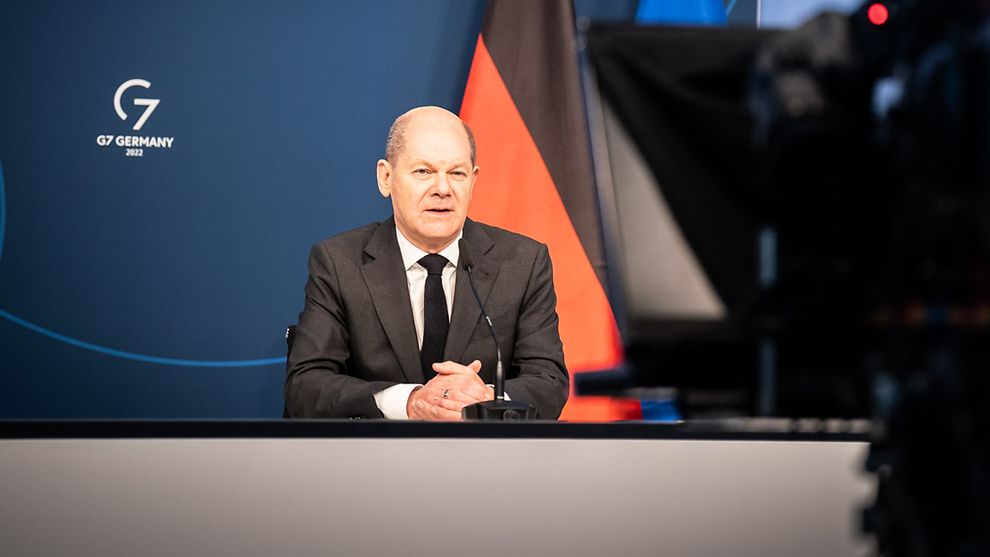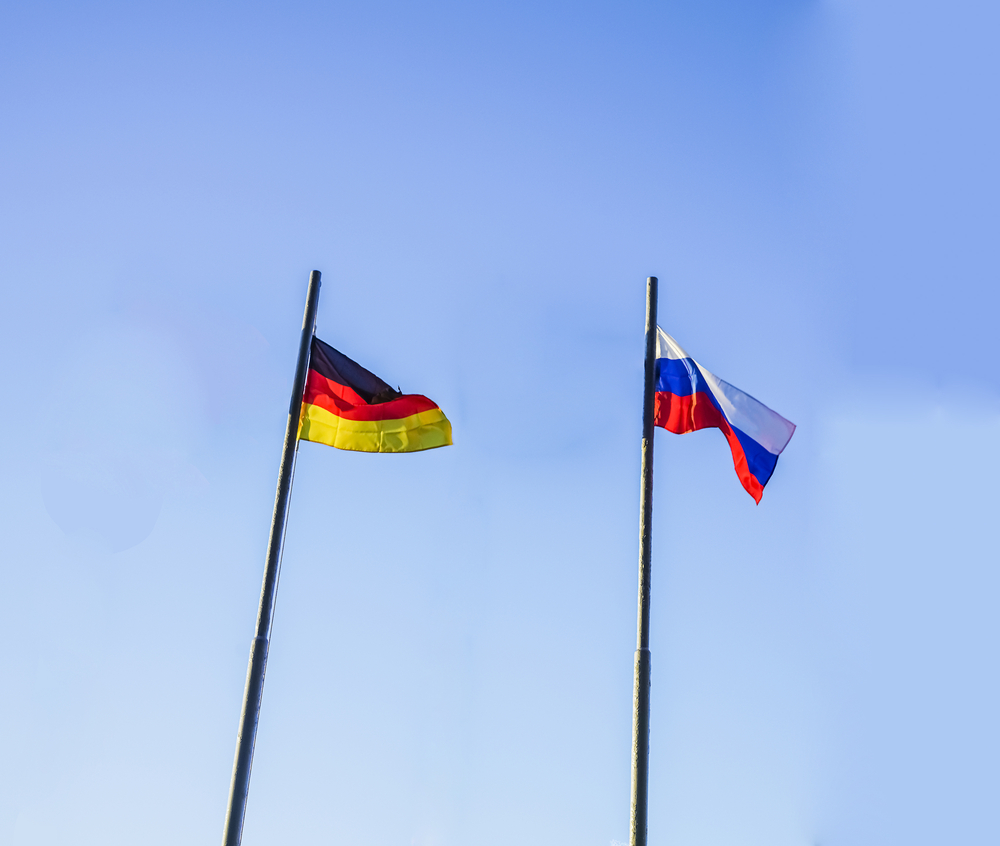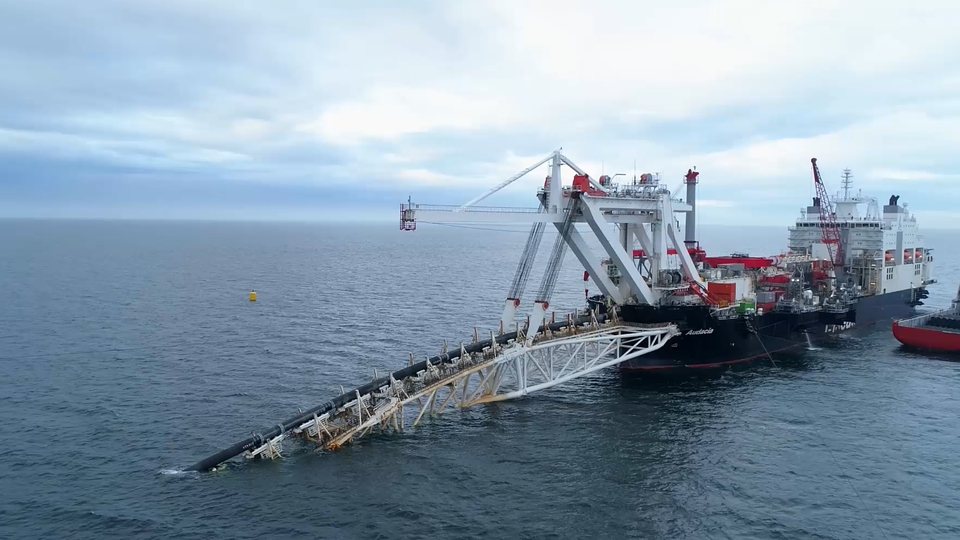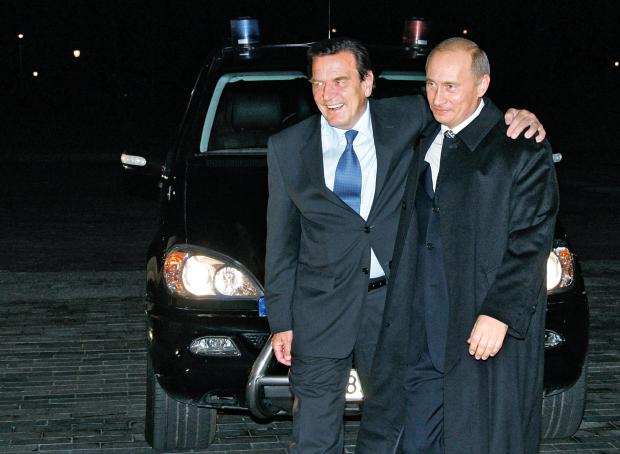Germany ranks among the top arms-exporting countries worldwide. However, it is withholding lethal security assistance to Ukraine and provides even non-lethal assistance with conspicuous parsimony.
Germany’s tripartite coalition government, in office since December 8, 2021, is continuing the policy of the predecessor government of Angela Merkel, which embargoed arms sales to the embattled Ukraine. In deference to Russia, moreover, the German government is grasping at legal opportunities to obstruct or block arms transfers from other North Atlantic Treaty Organization (NATO) member states to Ukraine.
The Social-Democrat Party is the element of continuity between the two German governments: as junior partner in the Christian Democrat–led coalition under Merkel until last December and now leading the current coalition government with the Greens and the Free Democrats. Thus, the German arms embargo on Ukraine is a matter of cross-party consensus in this country.
German officials have justified this policy mainly by repeating their hopes for a “peaceful solution” to the Russia-Ukraine conflict and by stressing the need to maintain German-Russian dialogue.
As a NATO-aspirant country, Ukraine enjoys access to the NATO Support and Procurement Agency (NSPA). In early 2021, Ukraine applied to procure 90 anti-sniper rifles from the United States and 20 anti-drone rifles from Lithuania via the NSPA. Using the agency’s consensus-based procedures, Germany blocked the transactions in May and again in November 2021. According to Ukrainian Defense Minister, Oleksiy Reznikov, Berlin relented in December 2021, but only for the anti-drone rifles (Leviy Bereh, December 10, 2021), recognizing that these are non-lethal, after all. It continues blocking the anti-sniper rifle sale (Bild, December 13, 2021).
In October 2021, the spokespersons for the German Chancellor’s Office and German Ministry of Foreign Affairs, in parallel with Kremlin press secretary Dmitry Peskov, had criticized the Ukrainian military’s use of a Turkish-made drone to suppress an enemy howitzer that had killed Ukrainian soldiers on the Donbas frontline. Ukrainian President Volodymyr Zelenskyy and Foreign Minister Dmytro Kuleba responded, in essence, that Ukrainian soldiers were acting in self-defense against an aggressor force on Ukraine’s own territory (Bundeskanzler.de, TASS, Ukrinform, October 27–29, 2021).
These are Soviet-legacy-pieces from the former German Democratic Republic’s army, inherited by the reunified Germany, transferred by it to Finland and, by the latter, to Estonia. Further re-export necessitates Berlin’s approval as the initial exporter of these items (Die Welt, January 20; Baltic Times, January 23). Germany’s Social-Democrat Chancellor Olaf Scholz faced persistent queries from the press on this matter during his recent joint press conference with French President Emmanuel Macron, in Berlin. The chancellor responded that the review of Estonia’s application to transfer these howitzers to Ukraine is “only at its very beginning” and it will take time (Bundeskanzler.de, January 25).
A January 21 session of the coalition government, chaired by Scholz, confirmed the policy of not authorizing lethal security assistance to Ukraine (Handelsblatt, January 21). The Social-Democrat Party’s leadership met in conclave (Klausur, albeit without Scholz), on January 31, to discuss security assistance and other Ukraine-related matters.
In mid-January, the United Kingdom delivered a consignment of anti-armor missiles to Ukraine. The British cargo planes carrying this consignment bypassed German air space, flying a longer route instead, apparently out of concern that German authorities might block or delay the overflight authorization (Stars and Stripes, January 18).
Ukrainian President Volodymyr Zelenskyy last year asked then-chancellor Merkel, during her valedictory visit to Kyiv, to lift her country’s ban on lethal security assistance to Ukraine (Ukrinform, August 21, 2021). Zelenskyy, along with Foreign Minister Dmytro Kuleba, presented the same request to Germany’s new foreign ministry head, Annalena Baerbock (a Green Party politician), during her recent visit to Kyiv (Ukrinform, January 18, 2022). Both requests went unheeded.
On January 19, Ukraine urgently asked Germany’s Ministry of Defense for military kits to Ukrainian civilian volunteers enrolling in the newly created territorial defense units. The request was for 100,000 helmets and an equal number of bullet-proof vests (Die Welt, January 23). Defense Minister Christine Lambrecht (Social-Democrat) responded with only 5,000 helmets “as a clear signal that we are on Ukraine’s side,” she declared (Die Zeit, Frankfurter Allgeneine Zeitung, January 26). This response has been ridiculed throughout German media (Welt, January 28; NDR, Focus.de, February 1).
German officials point out defensively that the government is funding the construction of a €5 million ($5.7 million) military hospital for Ukraine and has treated almost 200 wounded Ukrainian soldiers in Germany from 2014 through 2021.
According to Baerbock, speaking in the Bundestag’s debate on German-Ukrainian relations, Germany has contributed only €8 million ($9.1 million) to NATO’s Trust Fund for Ukraine from 2014 to date (Ukrinform, January 27). Admittedly, this collective Fund is chronically under-resourced.
Germany’s highly restrictive policy vis-à-vis Ukraine starkly contrasts with the policies of the United States, United Kingdom, Türkiye, the three Baltic States, and Czechia (Czech Republic). The Donald Trump administration was the first to release arms deliveries to Ukraine, and all aforementioned countries started supplying arms and lethal security assistance to Ukraine during 2021. Germany, however, seems to prioritize its relationship with Russia.
This is Part 1. To read Part 2, please click here.
Read More:
- Daily review: Canada’s $40 million loan, Czech artillery rounds & German helmets, Normandy talks success for Russia
- Why does Germany refuse to export arms to Ukraine?
- “Germany bears a special responsibility for European security”: Ukrainian Jews appeal to Chancellor Olaf Scholz
- 73 East Europe experts call on Germany to “fundamentally correct” Russia policy
- Germany blocks Ukraine’s arms purchase from NATO as unofficial arms embargo on Ukraine continues
- How German companies violated sanctions to bring Dutch sea platform to luxury marina in Crimea
- “A second Budapest memorandum”: experts on the US-Germany Nord Stream 2 deal
- From information laundering to influence: Russia’s footprints in Germany
- Germany strengthens Russia’s insolence with new economic agreement
- Putin regime has set up not one but five ‘fifth columns’ in Germany, Eidman says
- Putin actively using Cold War Stasi agent network in Germany, Reitschuster says
- Crimean factory gets generators from German company in breach of EU sanctions – media
- Germany, Norway deliver ilmenite ore to occupied Crimea in sanctions breach
- Nazi dreams of an enslaved Ukraine: the blind spot of Germany’s historical memory – Timothy Snyder





